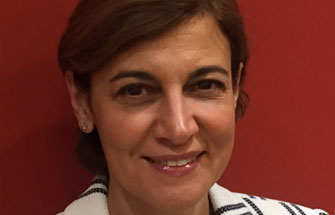Protecting investors while fostering the growth of Monaco’s financial centre is one of the foundations of the Commission for the Control of Financial Activities (CCAF). This principle was recently reinforced by a major move when the CCAF joined the International Organization of Securities Commissions (IOSCO).
The IOSCO was founded in 1983. Through its members, it represents over 95% of global market capitalization.
The objectives and principles for securities regulation issued by the IOSCO have been recognized by the G20 and the Financial Stability Board as the applicable standards for the industry. They represent basic principles that support the implementation of international standards for regulation, monitoring and control. They are used as a reference by the International Monetary Fund and the World Bank.
The IOSCO’s nearly 220 current members include financial regulators from around the world, international institutions like the European Securities and Market Authority (ESMA) and the European Commission, as well as affiliate members (stock markets, etc.). The organisation drafts, implements and encourages compliance with internationally recognised standards to ensure that financial markets operate smoothly, transparently and with integrity, with the ultimate goal of protecting investors.
The IOSCO’s main objectives are:
- cooperation among its members on defining and applying international standards to protect investors, guarantee transparent and effective financial markets, and fight systemic risks and financial crimes.
- exchanges of information and cooperation on market and intermediary supervision;
- international and regional exchanges of experience to foster market development, strengthen market infrastructure, and implement appropriate regulations.
After successfully completing a strict process, the CCAF obtained “associate member” status in January of this year.
The next step for the CCAF is earning “ordinary member” status, which it should achieve in 2019. That involves signing a “Multilateral Memorandum of Understanding” with the other members, to facilitate and structure exchanges of information.
The CCAF previously signed bilateral agreements with its international equivalents in France, Italy, Germany, Luxembourg, Belgium, and the Netherlands. Signing a multilateral agreement will enable broader and more effective international cooperation. To that end, the applicable regulations, particularly Law 1.338 on financial activities and its implementing provisions, are currently being overhauled to enable Monaco to meet the IOSCO’s requirements and address the changes that have occurred in the finance industry over the past decade.
In May 2018, for the first time, the CCAF took part in the IOSCO’s annual conference, held in Budapest, with a focus on artificial intelligence in financial services, crypto-currencies, and initial coin offerings (ICO). Their implications for regulators were core topics of discussion, in light of the need to protect customers and prevent potential risks related to the development of new techniques and market opportunities.
Monaco, which is keen to adopt the best international practices while preserving its unique features, has taken a new step forwards with its financial regulator’s membership in the IOSCO.






